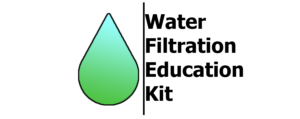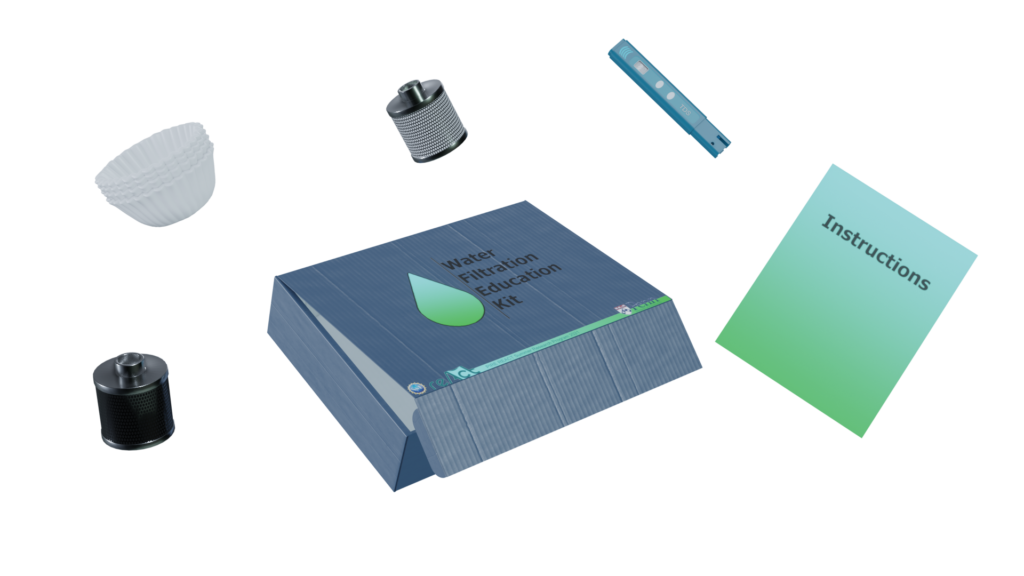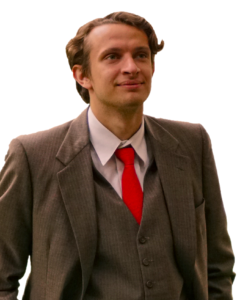Bite Sized and Digestible Education in Water Purification
Joseph Krueger
August 2021
Summary
Access to clean and affordable drinking water is a large issue for citizens throughout the world. Knowledge about water safety and purification can greatly increase both safe consumption of water and provoke advocacy for water security. This project aims to create an easily accessible and packaged learning experience for a wide range of secondary and postsecondary students. The three primary goals are:
- Provide easy to implement lessons for educators
- Give kids activities that are fun and informative
- Bring out potential passions for water and its protection

This product would be a self-contained box of fun and interactive water filtration experiments that can be focused on age groups from middle school to freshmen in college.
It would include a series of increasingly complex or effective filters, each with a different manufacturing or filtering method, starting with household products like a coffee filter and ending with layered membrane filtration systems. The material and assembly required can be changed to suit different skill levels and educational requirements.

The end result would be that students are able to filter water and liquids and would end up with a filter of their own.
Global Reach
The box was imagined to be flexible and self-contained for the express purpose of facilitating easy localization and sharing in a global community. The lessons taught with this would be valuable to a student anywhere in the world, and the concepts taught would be universally applicable. The main difference between a project like this and subscription based services that already exist would be that these would be sponsored and paid for by universities, governments, NGOs, and schools. This ensures that people can get access to these resources without a barrier to entry.
Bio
Joseph Krueger started a Master’s Degree Program in Aerospace Engineering at The Delft University of Technology in the Netherlands in Fall 2021. He graduated from Villanova University’s Mechanical Engineering Department (May 2021). He was a REACT Summer Researcher in 2021 (and had been selected as part of the REACT Summer cohort 2020 to go to Grenoble, France; unfortunately the program had to be canceled that year due to the COVID-19 pandemic).
Acknowledgements
I would like to thank Dr. Riggleman and Christian Tabedzki for mentoring and guiding me in my research.
I would also like to thank Kristin Field for putting this summer program together and the NSF for sponsoring this great summer of research and exploration

